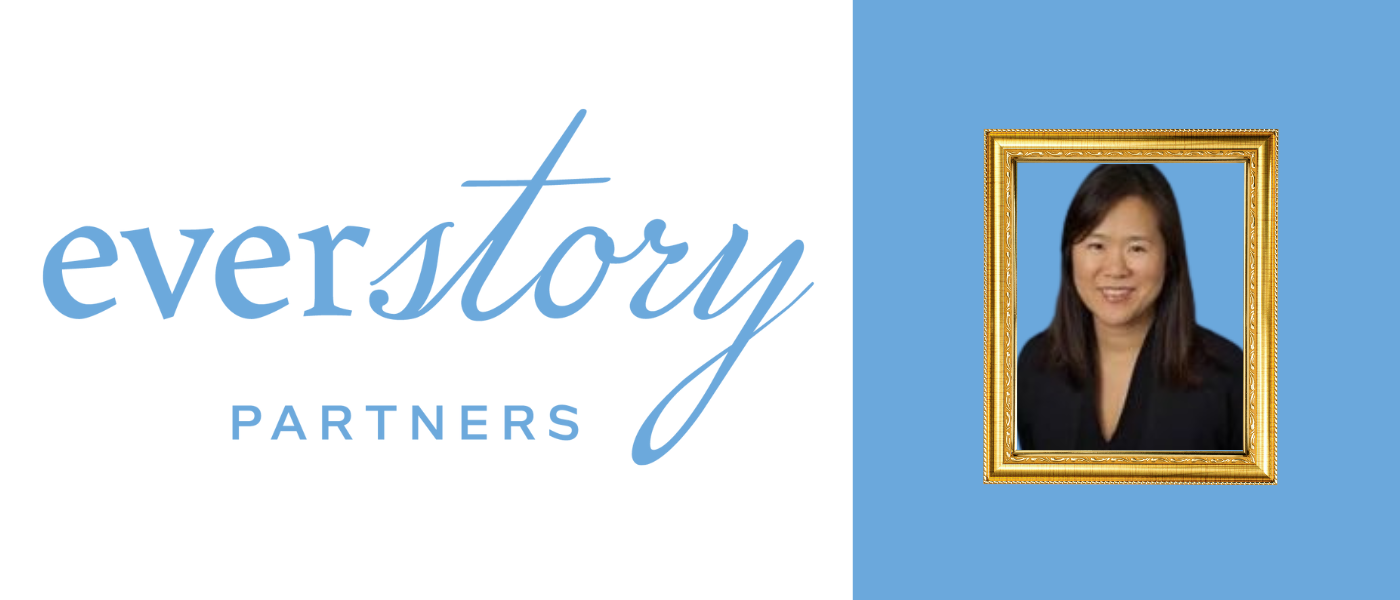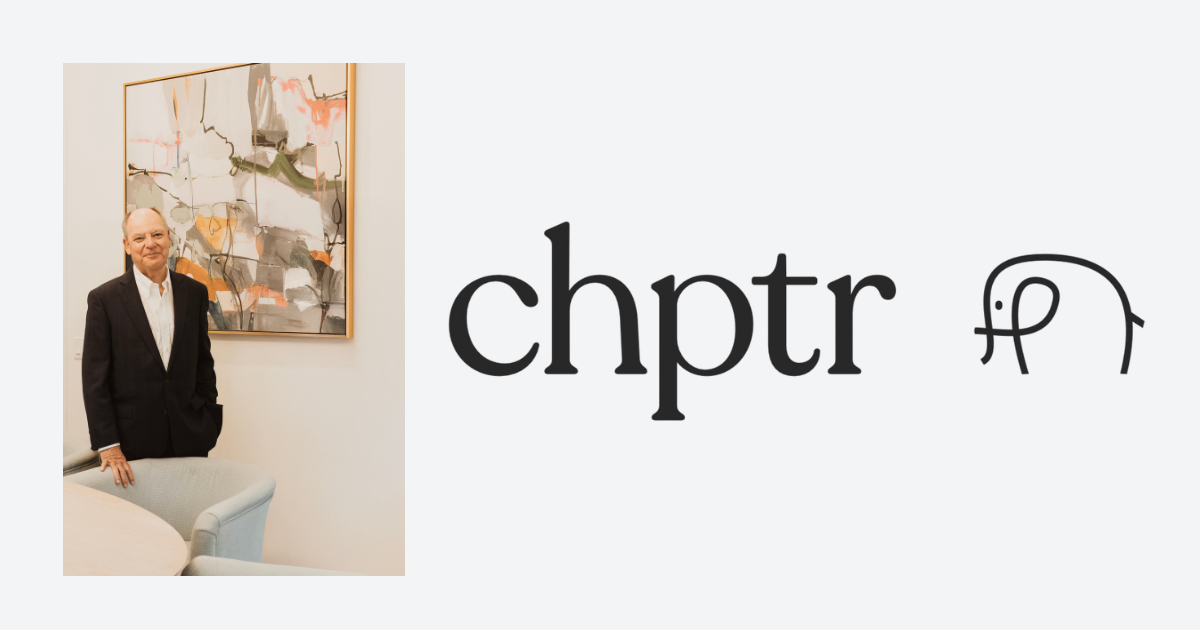My Personal EverStory Story and An Interview With CEO Lilly Donohue
Three years ago, my little family lost one of our own to COVID-19. As we trudged, masked and devastated, through the process of tying up the few loose ends of his fully-paid preneed arrangements, we expected care, consideration, and the first steps toward closure at both the funeral home and the cemetery. Instead, at the latter, we encountered the opposite, along with the dreaded, “I’ll have to call corporate.”
That was then. Fast forward to October 2023. We lost our matriarch – my husband’s 96-year- old grandmother. We followed the same path as before; same funeral home, same cemetery. This time, though, we immediately noticed a difference. Things just seemed, well, better. Of course, as a deathcare writer, I asked what had happened behind the scenes to facilitate this change. The answer, I learned, was EverStory Partners.
Corporate’s bad rap
I’ve written numerous stories and talked to a lot of people about corporate-owned deathcare operations. The corporate leaders I’ve met personally are incredible people, and the robust mergers and acquisitions market proves there are compelling reasons to partner with such a company. Yet, the prevailing opinion is still that acquisition by large-scale deathcare companies is sort of a death knell for employees and the families they serve.
My experience with the aforementioned cemetery in 2020 didn’t disprove this view. However, this year, the employees of these two EverStory Partners properties convinced me that not all deathcare corporations are the same. What I heard and experienced indicated that EverStory’s leadership, in particular, valued face-to-face interaction with employees, responded to feedback and property needs, empowered onsite decision-making, and did not tolerate terrible customer service.
As an inquisitive deathcare advocate, I wanted to know why EverStory seemed to be the “anti- corporate” corporation, so I reached out to Lindsay Granson, EverStory’s SVP of Sales and Marketing, who graciously connected me with the company’s CEO, Lilly Donohue. As it happened, I spoke with Donohue on a very special day, and what I learned from this interview was refreshing, enlightening, and definitely worth sharing.
CD: Lilly, thank you for letting me share my story with you. I think it speaks volumes for the culture you’re creating at EverStory Partners. I personally observed a perceptible change — and you’ve only recently joined the company!
LD: I did not plan this, but as I’m looking at the calendar… Today is my one-year anniversary at EverStory. I think I spent the first half of that year really listening and trying to figure out what’s working,and what’s not working. And the second part of the year was really trying to make some change. And starting with people first. Do we have the right people in the right place and then how do we support them?
CD: The funeral director we worked with was impressed that you introduced yourself and talked about the goals for EverStory via an interactive town hall meeting rather than an impersonal memo or email.
LD: I am trying to change the culture of the organization, which takes time and includes a commitment to more open communication and transparency. Live town halls are great for two-way communication, enabling employees to ask questions, share feedback, and express concerns directly to me and our leadership team. We want them to see the bigger picture and let them know that their voices are valued within the organization. These are not scripted events but honest conversations.. At the end of the day,our employees make the difference. They are helping families and communities every day. They’re building the culture. It’s not Lilly building the culture. I’m literally the least important person because I am the furthest from our families. But what I’m trying to do is rally resources to the right places and help define a common vision we’re all trying to achieve.
CD: One thing I noticed during my recent experience at the EverStory-owned cemetery is that, in addition to the incredible level of kindness, compassion, and attention to detail, no one ever said they’d have to “call corporate” to give us an answer as they did three years ago.
LD: I can’t tell you how happy I am to hear you say that. The thing is, we have amazing people. They really don’t need my guidance but rather my support. Our goal is to empower our team members to make decisions and serve families. If they need help or they’re having some issues, we help with problem solving or get them the needed resources. In this industry, it’s real people serving real people, and we want to make sure they know that even if things don’t go smoothly, we are here to help get things back on track. We have their back.
CD: As a family being served by those amazing people, I appreciated their empowerment. You’ve shared that you don’t come to EverStory Partners from a deathcare-related company. What have you learned about deathcare since joining the company?
LD: I’m a deathcare student. I’m trying to learn and absorb as much as I can. True story – one of our funeral home employees shared an honest letter with me and she suggested, among other things, that I should go to the NFDA and learn what it means to work with families since I didn’t have any deathcare experience. And I thought, that’s exactly what I should do. Whenever I have the opportunity, I want to learn as much as I can. I earned my funeral arranger certification during the weekend, attending my first ever NFDA conference. And of course, I’m spending time at our locations. I never just drive by or visit for 15 minutes and do the handshake. I usually try to spend a full day trying to understand the issues. I’m not there to point out problems. I’m just trying to understand what people have as obstacles and then how we can help them get over those.
CD: I love that you’re personally visiting locations; I imagine that your team members appreciate the face time with you. I don’t know if you’ve visited the two locations my family recently used, but I can attest that you’ve still made an impact.
LD: I think culture change and a commitment to operational excellence is always a multi-year process, so I’m just so happy to hear that you’re seeing it. I will tell you that in the last two months, it’s really, really shifted. We have more five-star reviews than ones and twos. But if a family calls the corporate line, I’m one of the first to look at the unresolved concerns. I’ll have a conversation with the general manager at the cemetery or the funeral director at the funeral home because we have to show people that service excellence matters. Getting people into the mindset of responding quickly, not punting the problem, and not hiding from an issue. If you made a mistake, own that mistake. We’re humans; we do make mistakes. This industry is hard work and not only physically demanding but also emotionally difficult. But we’ll figure it out. There’s a solution for every problem.
CD: I can tell you that we as families in need don’t go in thinking we’re going to an EverStory funeral home or EverStory cemetery. We’re using Elkins and Tri-Cities. We’re talking to Chris and Leslie and Debbie. I didn’t get a “corporate” vibe. And I don’t mean any disrespect there; in fact, I mean the opposite.
LD: You are exactly right. These are local businesses made up of local staff. Whenever you look at a successful, 5-star location, it’s always about the people providing the care, not Everstory, the company. The magic is how do we keep the local flavor of the communities but provide resources of a national company. No individual should be struggling in their location. If you’re struggling at your location for whatever reason, you’ve got thousands of people in 400 other locations that could share best practices to solve a problem or help you avoid one. Another positive is that there’s career growth given the size and scale of Everstory.
CD: One thing I realized at the cemetery this year is how many people it takes to care for the property and its inhabitants – including more than 20 of my family members, in this case. When we visit them, as we often do, we honestly do notice when the grass is cut or if there’s a nick in the granite.
LD: I think if there was a story to tell, it’s the importance of the work that’s being done and the recognition that your work actually matters to every family member. I think that’s the message that I want people to understand in our organization that there’s not a single thing you do that’s not important.




